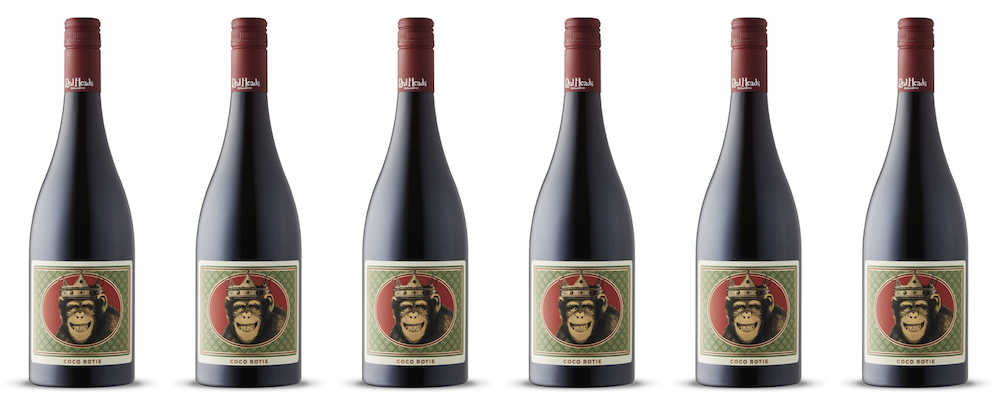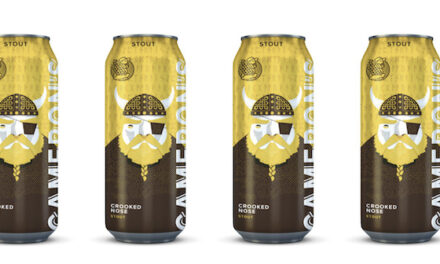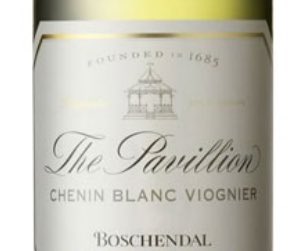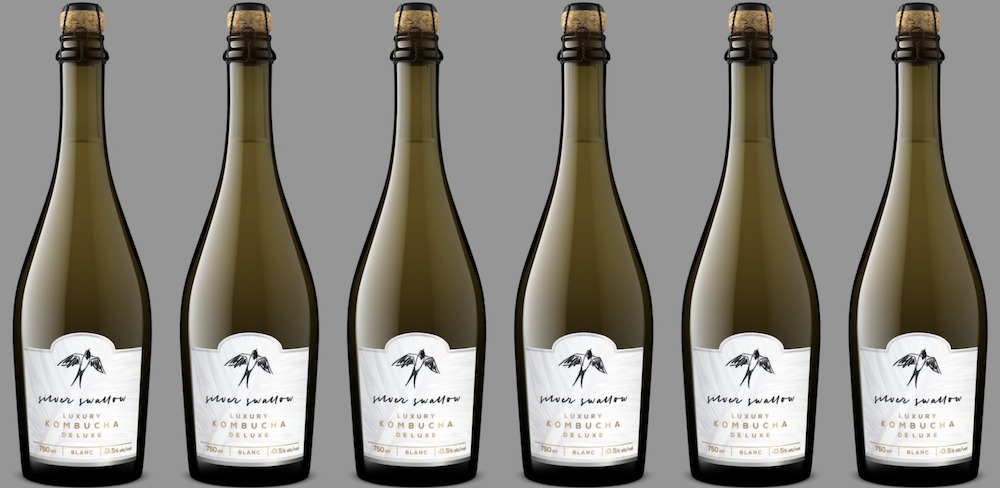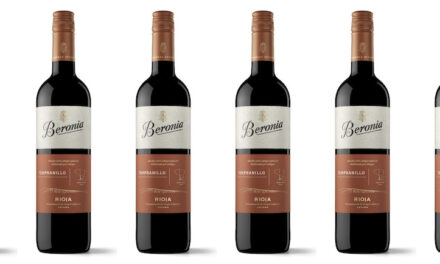2021 Redheads Coco Rôtie Syrah/Viognier, South Australia, Australia (Alcohol 14.5%, Residual Sugar 3 g/l) LCBO Vintages $24.95 (750ml bottle)
Ever since I was a child, I’ve been rather partial to monkeys, and so despite this being, ostensibly, a “critter label” I found myself immediately drawn to it.
Further exploration revealed that Coco Rôtie is actually a sponsor of Ontario’s Story Book Farm Primate Sanctuary, which cares for primates and is currently home to 24 monkeys and lemurs rescued from some very challenging and traumatic circumstances. Some of these animals have been seized from unregulated roadside zoos where they have been abused and neglected; some have undergone invasive procedures in research laboratories; and many have been surrendered to the sanctuary after having spent time as pets.
The cheeky chappie on each bottle’s hanging neck tag is a fellow known as Mr. Jenkins, a Spider Monkey who used to be in the film industry, unfortunately a sad reality for so many monkeys in North America. After being given up for sale at an exotic animal auction, Mr. Jenkins found solace at Story Book Farm. As a resident there, he now only shows off when he feels like doing that himself, not at the whim of an owner.
There’s a bit of background context to the name of the wine too: according to legend, in 638 AD, the Monkey King was born. He had quite a thirst that no amount of wine could quell. He also had quite the appetite, and no amount of roasted coconuts (Noix de Coco Rôties) could ever satisfy his heavenly hunger.
So, here we have a critter label with a fun backstory, supporting an extremely good local cause, but how is the wine itself? I hear you ask.
I’m always curious to try Shiraz/Syrah and Viognier co-ferments from all over the globe, and I thoroughly enjoyed this particular vintage of Coco Rôtie. With most of the Shiraz fruit coming from the McLaren Vale and from three second-generation growers (McMurtrie, Lloyd, and Borrett), this is a wine with considerable heft that definitely overdelivers for the reasonably accessible $24.95 price tag. The Viognier element comes from the cooler Adelaide Hills, bringing stone fruit/floral aromatics and a soft, silky texture to the mid-palate. While it’s not overly complex, it’s an extremely drinkable example of ripe, full-bodied McLaren Vale fruit, and even at 14.5% alcohol, it doesn’t tire the palate like many wines made in this fuller-bodied style.
The nose is an undeniably generous abundance of deep, dark black fruit (black cherries, blackberries), but there’s an extremely attractive perfumed anise/peach/magnolia aromatic here too, which lifts the wine well above the ordinary. As expected, oak, both French and American, plays a role here also, adding a defined sweet vanilla/cardamom note to the bouquet.
Saying that, despite that prominent oak and bold ripe fruit, on the palate, this plays out as a dry wine (only 3 g/l) with deliciously smooth milk chocolate-like tannins and a surprisingly extended spicy dark fruit finish, akin to spiced mocha cherry, that certainly belies the sub-$25 pricepoint. Having tasted this wine in previous vintages, I think Redheads have really found the sweet spot with the balance of fruit, acid, and oak in the 2021.
I loved drinking this by itself, but it would be a terrific match for any grilled pork, lamb, or beef; my second bottle sat very comfortably beside a pretty traditional beef lasagne.
It’s a slum-dunk as something to serve for any friends who usually enjoy their bolder wines and poo-poo your favoured lighter red wine styles (this happened to me just the other week!)
So, it’s a critter label (with a funky backstory, naturally) supporting a wonderful cause, and it’s a thoroughly enjoyable wine to boot. What’s not to love?
Also, as a family, we’ll be off to visit Mr. Jenkins and his fellow residents later this year, when Story Book Farm has one of its very few fundraising Public Open Days. In the interim, I’ll probably be consuming a fair bit of this lovely Coco Rôtie.
![]()
(Four and a half out of a possible five apples)

